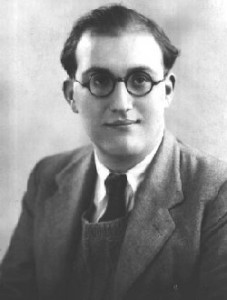Ein Zitat von George Berkeley
Die Liebe zur Wahrheit, zur Tugend und zum Glück der Menschheit sind fadenscheinige Vorwände, aber nicht die inneren Prinzipien, die die Geistlichen an die Arbeit bringen; Warum sollten sie sonst so tun, als würden sie die menschliche Vernunft missbrauchen, die natürliche Religion verunglimpfen und die Philosophen verunglimpfen, wie sie es allgemein tun?
Verwandte Zitate
Der Hauptfehler des menschlichen Geistes, der Fluch des menschlichen Glücks, der Verderber der menschlichen Tugend ... ist die Religion – diese dunkle Prägung zitternder Unwissenheit! Es ist die Religion – dieser Vergifter des menschlichen Glücks! Es ist die Religion – dieser blinde Führer der menschlichen Vernunft! Es ist die Religion – dieser Entthroner der menschlichen Tugend! die die Wurzel allen Übels und allen Elends ist, die die Welt durchdringen!
In diesem Punkt sind sich alle spekulativen Politiker einig, dass das Glück der Gesellschaft das Ende der Regierung ist, ebenso wie alle Geistlichen und Moralphilosophen darin übereinstimmen werden, dass das Glück des Einzelnen das Ende des Menschen ist. Aus diesem Grundsatz ergibt sich, dass die Regierungsform die beste ist, die der größtmöglichen Anzahl von Menschen im größtmöglichen Maße Leichtigkeit, Trost, Sicherheit oder, mit einem Wort, Glück vermittelt. Alle nüchternen Wahrheitsforscher, ob alt oder neu, heidnisch oder christlich, haben erklärt, dass das Glück des Menschen ebenso wie seine Würde in der Tugend besteht.
Vernunft ist natürliche Offenbarung, durch die der ewige Vater des Lichts und Quelle allen Wissens der Menschheit den Teil der Wahrheit mitteilt, den er in die Reichweite ihrer natürlichen Fähigkeiten gelegt hat: Offenbarung ist natürliche Vernunft, die durch eine neue Reihe von Entdeckungen erweitert wird, die ihnen mitgeteilt werden Gott. . . .
Es gab nie eine Religion auf der Welt, deren natürliche Tendenz so sehr darauf abzielte, den Frieden und das Glück der Menschheit zu fördern. Es macht die richtige Vernunft zu einem Gesetz in jeder möglichen Definition des Wortes. Und selbst wenn man annahm, es wäre eine rein menschliche Erfindung gewesen, wäre es die liebenswürdigste und nützlichste Erfindung gewesen, die der Menschheit jemals zu ihrem Wohl aufgezwungen wurde.
Warum sollten das Wissen, die Geschicklichkeit, die Sachkenntnis, der Fleiß und die temperamentvollen Wagnisse des Handels und Gewerbes, wenn sie von Erfolg gekrönt sind, nicht berechtigt sein, jene schmeichelhaften Auszeichnungen zu verleihen, von denen die Menschheit so allgemein fasziniert ist? Das sind die fadenscheinigen, aber falschen Argumente für einen Vorschlag, der in einer Nation, in der Menschen jeden Tag aus der Dunkelheit in den Reichtum aufsteigen, immer zahlreiche Fürsprecher finden wird. Sie zu widerlegen ist unnötig. Der allgemeine Sinn der Menschheit schreit mit unwiderstehlicher Kraft: „Un gentilhomme est toujours gentilhomme.“
Niemand ist in der Lage, über andere zu herrschen. Es wird nicht behauptet, dass die Menschheit perfekt ist oder dass es ihr allein aufgrund ihrer natürlichen Güte (oder des Fehlens derselben) erlaubt sein sollte (oder nicht), zu herrschen. Regel als solche führt zu Missbrauch. Es gibt keine Supermenschen oder privilegierten Klassen, die über der „unvollkommenen Menschheit“ stehen und fähig oder berechtigt sind, den Rest von uns zu regieren. Die Unterwerfung in die Sklaverei bedeutet die Hingabe des Lebens.
Was die Philosophen betrifft: Wenn sie wahre Philosophen sind, das heißt Wahrheitsliebende, sollten sie sich nicht darüber ärgern, dass sich die Erde bewegt. Wenn sie vielmehr erkennen, dass sie einen falschen Glauben vertreten haben, sollten sie denen danken, die ihnen die Wahrheit gezeigt haben; Und wenn sie fest davon überzeugt sind, dass sich die Erde nicht bewegt, werden sie Grund haben, sich zu rühmen, statt wütend zu sein.
Da es nicht länger zulässig ist, einen einzelnen Glauben oder Glaubensbekenntnis herabzusetzen, fangen wir an, sie alle herabzusetzen ... Eine Religion ist ein Glaubenssystem, das keinerlei Grundlage in der Realität hat. Religiöser Glaube ist ohne Grund und ohne Würde, und seine Bilanz ist nahezu überall schrecklich.
Als ich diese Autoritäten zum ersten Mal sammelte, war ich bestrebt, dass jedes Zitat zu einem anderen Zweck als der Veranschaulichung eines Wortes nützlich sein sollte; Deshalb habe ich den Philosophen Prinzipien der Wissenschaft entnommen; von Historikern bemerkenswerte Fakten; von Chymisten vollständige Prozesse; von den Geistlichen eindrucksvolle Ermahnungen; und von Dichtern wunderschöne Beschreibungen.
Religion ist in der Herde immer noch nützlich – sie trägt zu ihrem geordneten Verhalten bei, wie nichts anderes es könnte. Das rohe menschliche Tier ist unausrottbar abergläubisch, und es gibt jeden biologischen Grund, warum es so sein sollte. Nimm ihm seinen christlichen Gott und seine Heiligen weg, und er wird etwas anderes anbeten.
Religion sollte einer vernünftigen Beurteilung und rationalen Überprüfung unterliegen und ebenso offen diskutierbar sein wie beispielsweise Politik, Kunst und das Wetter. Wir sollten uns daran erinnern, dass der erste Verfassungszusatz dem Kongress sowohl die Einführung von Gesetzen zur Bezeichnung einer Staatsreligion als auch die Einschränkung der Meinungsfreiheit verbietet. Es gibt keinen Grund, warum wir uns davor scheuen sollten, offen über Religion zu sprechen, keinen Grund, warum es als unhöflich angesehen werden sollte, darüber zu diskutieren, insbesondere wenn, wie so oft, religiöse Menschen sie selbst zur Sprache bringen und versuchen, sie anderen aufzuzwingen .
Authentischer Glaube führt uns dazu, andere mit bedingungslosem Ernst zu behandeln und eine liebevolle Ehrfurcht vor dem Geheimnis der menschlichen Persönlichkeit zu entwickeln. Authentisches Christentum sollte zu Reife, Persönlichkeit und Realität führen. Es sollte ganze Männer und Frauen formen, die ein Leben in Liebe und Gemeinschaft führen. Falsche, misshandelte Religion erzeugt den gegenteiligen Effekt. Wann immer die Religion Verachtung zeigt oder die Rechte von Menschen missachtet, selbst unter den edelsten Vorwänden, führt sie uns von der Realität und von Gott weg.
Die menschliche Natur selbst ist immer mehr ein Verfechter der Freiheit. Es gibt auch in der menschlichen Natur einen Groll gegen Verletzungen und Empörung über Unrecht. Eine Liebe zur Wahrheit und eine Verehrung der Tugend. Diese liebenswürdigen Leidenschaften sind der „latente Funke“. . . Wenn die Menschen in der Lage sind, die Unterschiede zwischen wahr und falsch, richtig und falsch, Tugend und Laster zu verstehen, zu sehen und zu fühlen, auf welchen Grundsatz könnten sich die Freunde der Menschheit dann besser stützen, als auf den Sinn dieses Unterschieds?
Von allen Gesinnungen und Gewohnheiten, die zu politischem Wohlstand führen, sind Religion und Moral unverzichtbare Stützen. Vergebens würde der Mann Tribut an den Patriotismus beanspruchen, der daran arbeiten sollte, diese großen Säulen des menschlichen Glücks zu untergraben – diese stärksten Stützen der Pflichten von Menschen und Bürgern. . . . Sowohl Vernunft als auch Erfahrung verbieten uns zu erwarten, dass sich die nationale Moral unter Ausschluss religiöser Prinzipien durchsetzen kann.








































